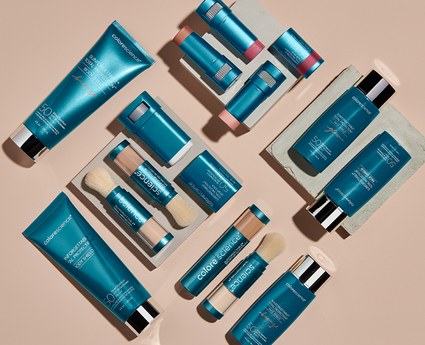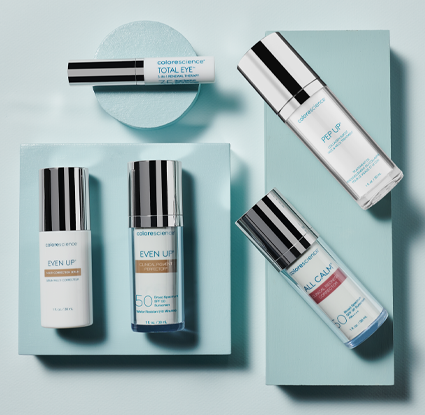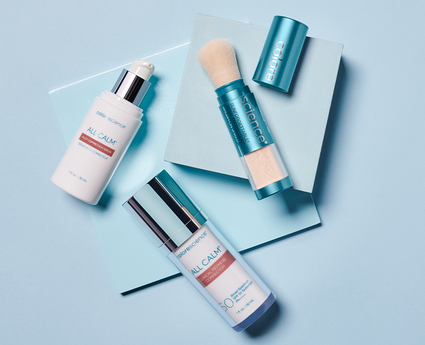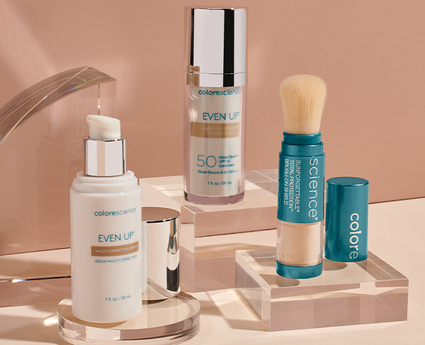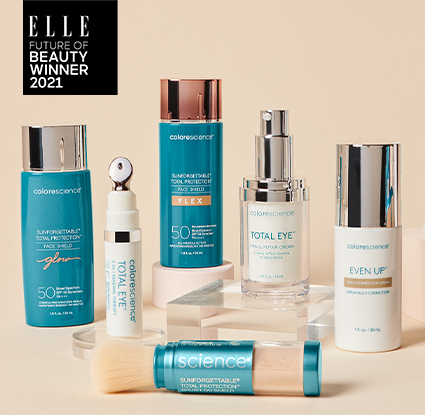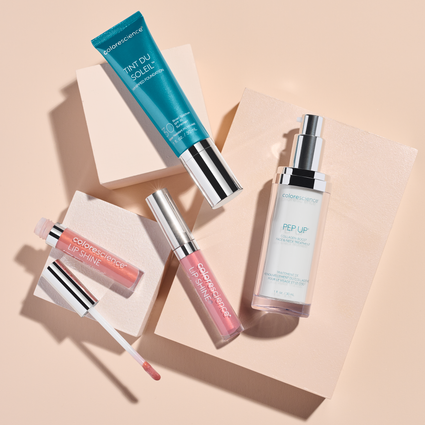How To Choose the Right Sunscreen
Are you looking for a way to protect your skin and improve your overall health? If so, it’s important to wear sunscreen regularly. There are a lot of people who only put on sunscreen when they know they will be spending all day outside, but it’s important to wear sunscreen every day, rain or shine. There are UV rays outside whenever the sun is up, so it is critical for you to protect your skin by wearing sunscreen every day.
When you go to the store, you will quickly realize that there are plenty of sunscreen options available. So how do you make the right choice to meet your needs? You might be wondering how to choose a safe sunscreen or how to choose a good sunscreen for your face. Learn more below, and make sure that you protect your skin accordingly.
- Why is it important to wear sunscreen?
- How does sunscreen work?
- What are the different types of sunscreen?
- How do you choose the right sunscreen?
- The right sunscreen also depends on your skin type
- How else can you protect your skin from the sun?
- Take the right precautions when you go out in the sun
Why is it important to wear sunscreen?
As you learn more about how to choose a sunscreen, you might be wondering why it’s necessary to wear sunscreen every day. There are several reasons why it is so important for you to wear sunscreen regularly, such as:
- It prevents your skin from getting sunburned. Sunburns can be incredibly painful, and make it difficult for you to shower, sleep, or even sit comfortably. If you want to avoid a sunburn, you need to wear sunscreen regularly, especially when the UV is high.
- Sunscreen can reduce your chances of developing skin cancer down the road. Even though it is unlikely that you will develop skin cancer immediately after getting sunburned, repeated burns can increase your chances of getting skin cancer later on.
- Sunscreen may also help you stave off signs of aging. If you spend a lot of time in the sun, particularly if you get a lot of sunburns, you could cause your overall skin health to deteriorate.

How does sunscreen work?
As you try to figure out how to choose a safe sunscreen, you might be wondering, how does sunscreen work? Sunscreen works by preventing UVB and UVA rays from striking your skin, which could lead to severe damage. It is these ultraviolet rays, which have a tremendous amount of energy, that damage your skin.
If you do not wear sunscreen, these rays will strike your skin directly. The tremendous punch that they pack will cause DNA damage and inflammation. The combination of the two can lead to a sunburn, and repeated damage can eventually lead to skin cancer. Essentially, sunscreen absorbs or reflects these UV rays, preventing them from damaging your skin.

What are the different types of sunscreen?
If you are wondering how to choose a good sunscreen for your face, it is important for you to learn about the different sunscreen options available. There are several choices for sunscreen, and you must make sure you pick the right sunscreen for your needs. The two types of sunscreen are chemical and mineral sunscreen, and there are several differences you need to keep in mind when deciding between the two.
Chemical sunscreen
One of the most common options for sunscreen is chemical sunscreen. Chemical sunscreen is absorbed directly into the skin and acts like a sponge. It sits in the deeper layers of your skin, absorbs rays from the sun, converts those rays into heat, and then releases them away from the skin. That way, you don't have to worry about UV rays damaging your skin.
One of the biggest benefits of using strong chemical sunscreen is that it does not take much to provide you with significant protection. This means that it might not take you as long to put on sunscreen, and you don't necessarily have to refill your sunscreen supply as often. Chemical sunscreens are also typically lighter and won’t leave a white cast on your skin. They’re also more water-resistant.
However, there are a few drawbacks to note as well. Because chemical sunscreen sits in the deeper layers of the skin, it may not necessarily provide strong protection against all UV rays, such as those that concentrate on the surface. Furthermore, chemical sunscreen can also be irritating for people who have sensitive or acne-prone skin. Some forms of chemical sunscreen also contain ingredients that could be dangerous for some people, so it’s important to always read the ingredients before selecting a sunscreen to use.
Mineral sunscreen
Another option for sunscreen is mineral sunscreen. Mineral sunscreen creates a literal barrier between your skin and the sun. Mineral sunscreen sits on top of your skin, acting as a blocker that will scatter UV rays away from your skin. Essentially, mineral sunscreen is like a mirror.
Because mineral sunscreen sits on top of your skin, it will protect against both UVA and UVB rays. This means that mineral sunscreen does a better job of blocking out all potential skin damage. It’s also better for sensitive and acne-prone skin because the ingredients are non-irritating.
While mineral sunscreen is very effective, there are a few drawbacks as well. For example, mineral sunscreen has a white appearance on the skin, so even after you have applied it, it can still be visible. Furthermore, when someone rubs or scratches the skin, they run the risk of wiping away the sunscreen, which can leave them vulnerable to a burn. Finally, it also wears off more quickly, so more mineral sunscreen has to be reapplied more often.

How do you choose the right sunscreen?
So, how do you choose the right sunscreen? There are plenty of options available, but it’s important to choose a sunscreen that is right for your skin type and will provide you with the protection you are looking for. There are several requirements you should meet if you want your sunscreen to be as effective as possible.
These are qualities that make up a good sunscreen:
Has an SPF of at least 30
You should find a sunscreen that has a very high sun protection factor, which is usually shortened to SPF. Ideally, you should select a sunscreen that has an SPF of at least 30. The higher the SPF number is, the more effective it should be at protecting your skin for a long amount of time.
Is broad spectrum
You should also find a sunscreen that will protect against both UVA and UVB rays. This is called a broad-spectrum sunscreen. There are some sunscreen options that only protect against UVA or UVB rays, but that might leave your skin vulnerable to still suffering a severe burn. Take a look at the container and make sure it provides you with protection against both categories of rays before you make a final decision.
Contains active ingredients
You should also find sunscreen that contains active ingredients. You need to locate active ingredients because they will provide you with the best level of protection. Specifically, some of the ingredients you should look for include titanium dioxide and zinc oxide.
Is water-resistant
Of course, you should also find sunscreen that is water-resistant, especially if you’re going to be spending the day swimming. But even if you don't plan on r jumping in a pool, you will probably still do plenty of sweating, so you need to make sure your sunscreen is water-resistant.

The right sunscreen also depends on your skin type
You should also find sunscreen that is compatible with your skin type. If you have sensitive skin, you might want to choose a sunscreen that doesn't have any potential irritating or inflammatory agents. Specifically, chemical sunscreen might not be a good choice because it often contains irritating ingredients.
Or, if you have oily skin that is prone to acne, you may want to stay away from sunscreen that has a lot of oil in it. That way, you can prevent your skin from breaking out. If you’re not sure which sunscreen is right for your skin type, do not hesitate to reach out to a professional who can help you find the right sunscreen for your skin.
How else can you protect your skin from the sun?
There are plenty of other ways you can protect your skin from the sun in addition to wearing sunscreen every day. A few of these options include:
- Wearing long clothing when you go outside. Even though it might make you hot, wearing long can provide extra protection against the sun.
- Wearing a hat when you go outside. A hat can help you protect your face and your neck from the sun.
- Wearing sunglasses to protect your eyes from the sun as well. Protecting your eyes against UV rays may reduce your chances of developing cataracts down the road.
- Avoiding going outside during the middle of the day. The sun is most intense from 10 a.m. to 3 p.m., so try to stay indoors during that time.
If you follow these tips, you can protect your skin, and your entire body, from the sun.
Take the right precautions when you go out in the sun
It is critical for you to take the right precautions when you go outside. Even though it may be nice to spend some time in the sun, you must make sure that you protect yourself accordingly. That means investing in high-quality, safe, reliable sun protection products. If you are looking for the best sunscreen in the industry, you should take a closer look at Colorescience. We have plenty of options available, and we can provide you with personalized recommendations for what sunscreen is best for your needs. Colorescience even offers a complete line of SPF-infused makeup, from foundation to lip gloss, so you can customize your daily beauty routine with built-in sun protection.
By wearing sunscreen regularly, you can reduce your chances of dealing with a sunburn or developing skin cancer later in life. Take a look at everything we have in store, and learn how to choose a sunscreen properly.

